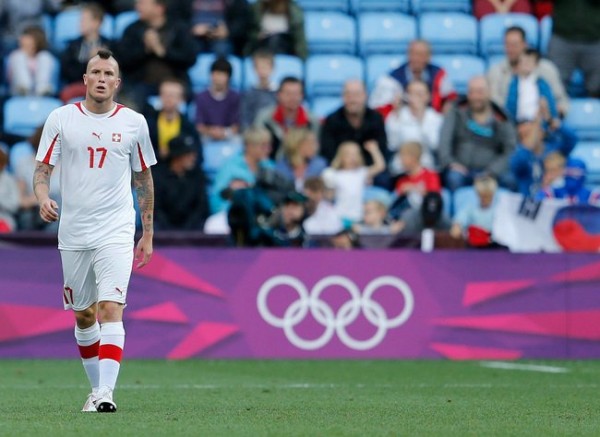A note to Olympians worldwide: Be careful what you Tweet, because it could get you disqualified from the Olympic Games. In under a week, two athletes have already been expelled from their country's teams for discriminatory comments made on their Twitter accounts.
It started with Greek triple jumper Voula Papachristou. The 23 year-old made a derogatory remark about African immigrants in Greece, which received 100+ retweets. After catching sight of this tweet, the Hellenic Olympic Committee banned her from the Olympic games, making her the first athlete to be banned for misuse of Twitter.
Voula was understandable upset:
"I have not slept at all and to be honest I am still trying to come to terms with what has happened," she told Reuters. "I am trying to stay calm otherwise I would lose control."I am thankful to my coach and family and so many other people who have stuck by me.... After so many years of hurt and sacrifices to try and get to my first Olympics I am very bitter and upset. But what has upset me the most is the excessive reaction and speed of the disciplinary decision."I don't know if they want to make an example out of me because of my profile, this is for others to judge, but what I believe is that they used their maximum disciplinary power on me for this," Papachristou said. "They went straight to the final stage in excluding me from the team, which was highly excessive."Switzerland's Michel Morganella at the Olympic Games. Credit: Peter Klaunzer/European Pressphoto Agency
Just three days later, Switzerland's soccer player Michel Morganella was banned from the London games for a tweet he sent after the country's 2-1 loss to South Korea. In a moment of anger, he later clarifies, his tweet was not only derogatory but violently offensive.
He showed more remorse and understanding than Voula, however, in his response, calling it a "huge mistake” and commenting that he was “truly sorry for the people in South Korea, for footballers, but also for the Swiss delegation and the Swiss football in general.”
He made clear in this statement through Swiss Olympics:
"It's clear that I'm accepting the consequences."
These two instances shed light on the growing need for the incorporation of social media guidelines in an Olympic Charter. While the charter makes clear its principles, the recent trend in social media creates tensions that have yet to be resolved.
What's your take on these two instances? Does the punishment fit the crime? What should be done to prevent animosity from spreading on social networks during the Olympic Games?

